Il y a 11 fiches.
③ Ingrédient
Designing Interfaces
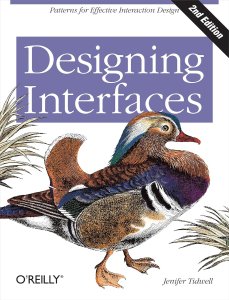
Patterns for Effective Interactive Design
③ Ingrédient
Designing Interfaces
"Users demand applications that are well behaved, good-looking, and easy to use. Your clients or managers demand originality and a short time to market. The good news? UI technology has evolved into a set of best practices and reusable ideas for a wide range of interactive applications today. And Designing Interfaces is a bestseller because it's one of the few reliable resources available to guide you. This book captures UI best practices as design patterns -- solutions to common design problems, tailored to the situation at hand. The updated edition now includes patterns for mobile apps, social networks, and search interfaces, as well as web applications and desktop software. [...]"
③ Ingrédient
Programmer l'intelligence collective
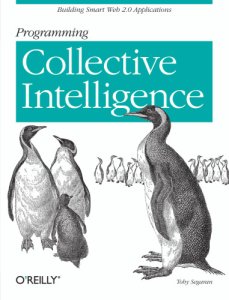
Building Smart Web 2.0 Application
③ Ingrédient
Programmer l'intelligence collective
Want to tap the power behind search rankings, product recommendations, social bookmarking, and online matchmaking? This fascinating book demonstrates how you can build Web 2.0 applications to mine the enormous amount of data created by people on the Internet. With the sophisticated algorithms in this book, you can write smart programs to access interesting datasets from other web sites, collect data from users of your own applications, and analyze and understand the data once you've found it.
③ Ingrédient
Geometric Patterns with Creative Coding
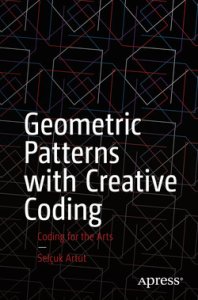
Coding for the Arts
③ Ingrédient
Geometric Patterns with Creative Coding
③ Ingrédient
Visualizing Data
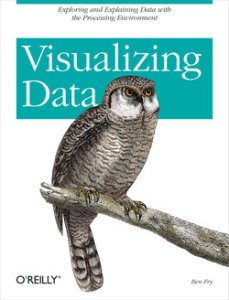
Exploring and Explaining Data with the Processing Environment
③ Ingrédient
Visualizing Data
"Enormous quantities of data go unused or underused today, simply because people can't visualize the quantities and relationships in it. Using a popular, open source downloadable programming environment developed by the author, Visualizing Data demonstrates methods for representing data accurately on the Web and elsewhere, complete with user interaction, animation, and more. [...]"
③ Ingrédient
Programming Interactivity
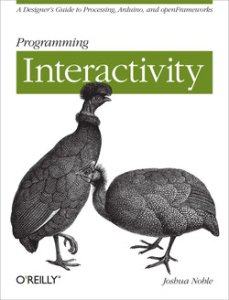
A Designer's Guide touristique Processing, Arduino, and openFrameworks
③ Ingrédient
Programming Interactivity
"Make cool stuff. If you're a designer or artist without a lot of programming experience, this book will teach you to work with 2D and 3D graphics, sound, physical interaction, and electronic circuitry to create all sorts of interesting and compelling experiences -- online and off. [...]"
③ Ingrédient
Practical Internet Groupware
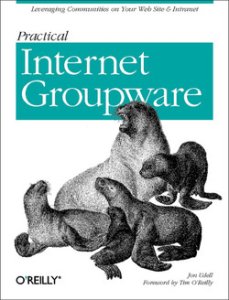
Building Tools for Collaboration
③ Ingrédient
Practical Internet Groupware
Foreword : Tim O'Reilly
"Collaboration. From its academic roots to the bustling commerce sites of today, the Internet has always been about collaboration: providing a means for people to communicate and work together effectively. But how do you build effective tools for collaboration? How do you build tools that are simple enough for people to really use, yet powerful enough to really facilitate collaboration? In 1995 Jon Udell became executive editor for new media at BYTE magazine, taking on the challenge of building an online presence for a traditional print publication. In meeting this challenge, he discovered that he was managing an online community, not just an online publication. [...]"
"Collaboration. From its academic roots to the bustling commerce sites of today, the Internet has always been about collaboration: providing a means for people to communicate and work together effectively. But how do you build effective tools for collaboration? How do you build tools that are simple enough for people to really use, yet powerful enough to really facilitate collaboration? In 1995 Jon Udell became executive editor for new media at BYTE magazine, taking on the challenge of building an online presence for a traditional print publication. In meeting this challenge, he discovered that he was managing an online community, not just an online publication. [...]"
③ Ingrédient
Head First Design Patterns
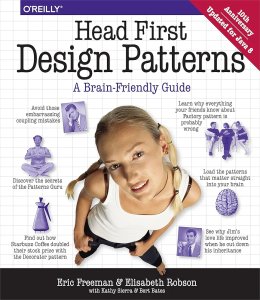
A Brain-Friendly Guide
③ Ingrédient
Head First Design Patterns
Eric Freeman, Elisabeth Robson, Bert Bates
"What’s so special about design patterns?
At any given moment, someone struggles with the same software design problems you have. And, chances are, someone else has already solved your problem. This edition of Head First Design Patterns—now updated for Java 8—shows you the tried-and-true, road-tested patterns used by developers to create functional, elegant, reusable, and flexible software. By the time you finish this book, you’ll be able to take advantage of the best design practices and experiences of those who have fought the beast of software design and triumphed. [...]"
"What’s so special about design patterns?
At any given moment, someone struggles with the same software design problems you have. And, chances are, someone else has already solved your problem. This edition of Head First Design Patterns—now updated for Java 8—shows you the tried-and-true, road-tested patterns used by developers to create functional, elegant, reusable, and flexible software. By the time you finish this book, you’ll be able to take advantage of the best design practices and experiences of those who have fought the beast of software design and triumphed. [...]"
③ Ingrédient
Domain-Driven Design
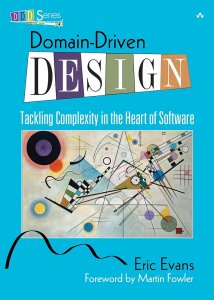
Tackling Complexity in the Heart of Software
③ Ingrédient
Domain-Driven Design
Préface : Martin Fowler
"The software development community widely acknowledges that domain modeling is central to software design. Through domain modeling, software developers are able to express rich functionality and translate that functionality into software implementation that truly serves the needs of its users. Despite its obvious importance, however, there are few practical resources that show how to incorporate effective domain modeling into the software development process.
Domain-Driven Design fills that need. This is not a book about specific technologies. [...]"
"The software development community widely acknowledges that domain modeling is central to software design. Through domain modeling, software developers are able to express rich functionality and translate that functionality into software implementation that truly serves the needs of its users. Despite its obvious importance, however, there are few practical resources that show how to incorporate effective domain modeling into the software development process.
Domain-Driven Design fills that need. This is not a book about specific technologies. [...]"
③ Ingrédient
Coding Art
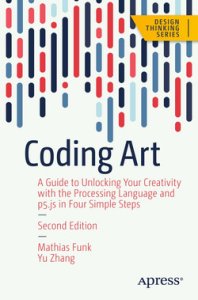
A Guide to Unlocking Your Creativity with the Processing Language and p5.js in Four Simple Steps
③ Ingrédient
Coding Art
"Finally, a book on creative programming, written directly for artists and designers! This second edition offers expanded and updated content incorporating the latest advancements and trends in the field of creative programming, also for creatives who want to work directly with P5.js and online. It delves deeper into the intricacies of computational art. It includes fresh case studies that explore real-world applications of coding art, inspiring readers to think beyond traditional boundaries.
Rather than following a computer science curriculum, this book is aimed at creatives who are working in the intersection of design, art, and education. [...]"
Rather than following a computer science curriculum, this book is aimed at creatives who are working in the intersection of design, art, and education. [...]"
③ Ingrédient
Information Architecture
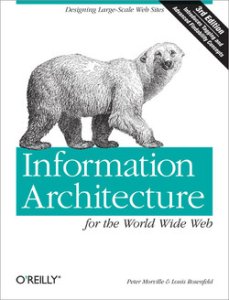
For the World Wide Web
③ Ingrédient
Information Architecture
Peter Morville, Louis Rosenfeld
"The post-Ajaxian Web 2.0 world of wikis, folksonomies, and mashups makes well-planned information architecture even more essential. How do you present large volumes of information to people who need to find what they're looking for quickly? This classic primer shows information architects, designers, and web site developers how to build large-scale and maintainable web sites that are appealing and easy to navigate. [...]"
"The post-Ajaxian Web 2.0 world of wikis, folksonomies, and mashups makes well-planned information architecture even more essential. How do you present large volumes of information to people who need to find what they're looking for quickly? This classic primer shows information architects, designers, and web site developers how to build large-scale and maintainable web sites that are appealing and easy to navigate. [...]"
③ Ingrédient
UML in a nutshell
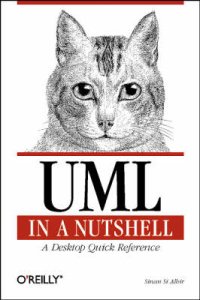
À Desktop Quick Reference
③ Ingrédient
UML in a nutshell
"Modeling languages have been used by system developers for decades to specify, visualize, construct, and document systems; rough sketches using stick figures and arrows and scribbled routing conditions go back still further. But the Unified Modeling Language (UML), for the first time in the history of systems engineering, gives practitioners a common language that applies to a multitude of different systems, domains, and methods or processes. It does not guarantee project success, but enables you to communicate solutions in a consistent, standardized, and tool-supported language. All indications suggest that the industry is rushing to the UML. [...]"

